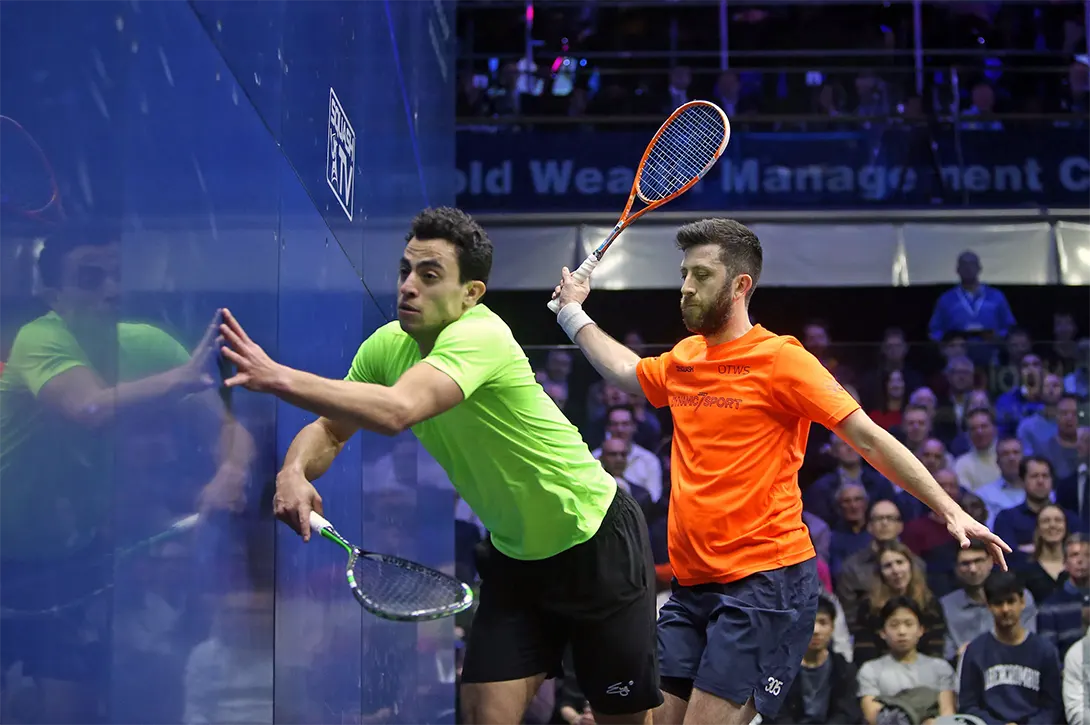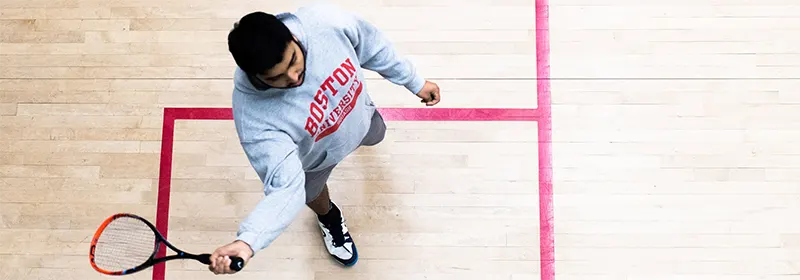27 May 2022 / 3-Min Read / Translate
Part of the reason squash has such a compact swing is the back wall, but as equally important is not hitting your opponent, both with the racket when swinging and with the ball.
Squash developed a set of rules that are designed to keep players safe and also keep things fair. The problem is, especially for beginners and new players, that interpreting the rules seems to differ widely. I recently made an opinion video about introducing a Squash License, which seemed to have upset a few people. I stand by the concept that new players to squash should have the opportunity to learn the basic rules without having to have coaching. Anyway, back to Strokes and Lets.

At least buy me dinner first, please!
Part of the rules include something called “Strokes” and Lets”. Let’s start with Lets (see what I did there?) If you movement to the ball is hindered or limited in anyway, you should stop and call “Let, Please”. This tells the other player, and the referee if you have one, that you felt impeded. If the “let” is awarded, then you replay the point again, with the same server from the same side without the same points as before the serve.
If the decision is “no let“, you lose the point. I believe Americans call this concept a Do Over. You can not say “Let, please” and hit the ball and if it was a winner, say “Oh, I don’t want a let now, thank you“. You must stop playing. It is possible to call for a let, but hit the ball to show you could have, but then the question becomes, well if you hit the ball, why did you call a let? – but that’s a whole other topic for another day.

Can you ask for a let on the serve?
I hope you are beginning to see that things are not exactly black and white, there will always be two-sides to the situation; yours and your opponent’s. The reality is that in most cases it is better to play lets than have dangerous situations. By some people, manipulate that goodwill by asking for lets that do not deserve it, and without a referee it can be really hard to stay fair when somebody is essentially trying to cheat you.
I recommend you remain calm and aloof, assent to their request for a let and punish them by making them run more than they have ever run before!
Moving onto the “Stroke”. Unlike a “Let”, which was about access to the ball, a “stroke” is because you had reached the ball, but couldn’t hit it, due to your opponent being in the way. You still must call “Let, please?” and then a decision must be made, either by you and your opponent or by the referee. If you are awarded the “stroke”, this means the point is awarded to you. Well done, for not playing dangerously! If the decision is “No let“, then you lose the point. A “No let” is giving because there really wasn’t any interference of danger involved.
I won’t lie to you, not having a referee in contentious games and matches is difficult. Some people can be mean-spirited, but in all my years of playing competitive matches, playing against people actively trying to cheat you can be counted on one hand, two if you are a Simpson.
The bigger problem is when people don’t know the rules and have never taken the time to even read them and educate themselves. Ideally, squash should be played with a fair-spirited attitude, but as soon as things become competitive, things become different.
Put simply: A stroke (your point) is because you were stopped from hitting the ball and a let (play the point again) is because you were hindered getting to the ball.